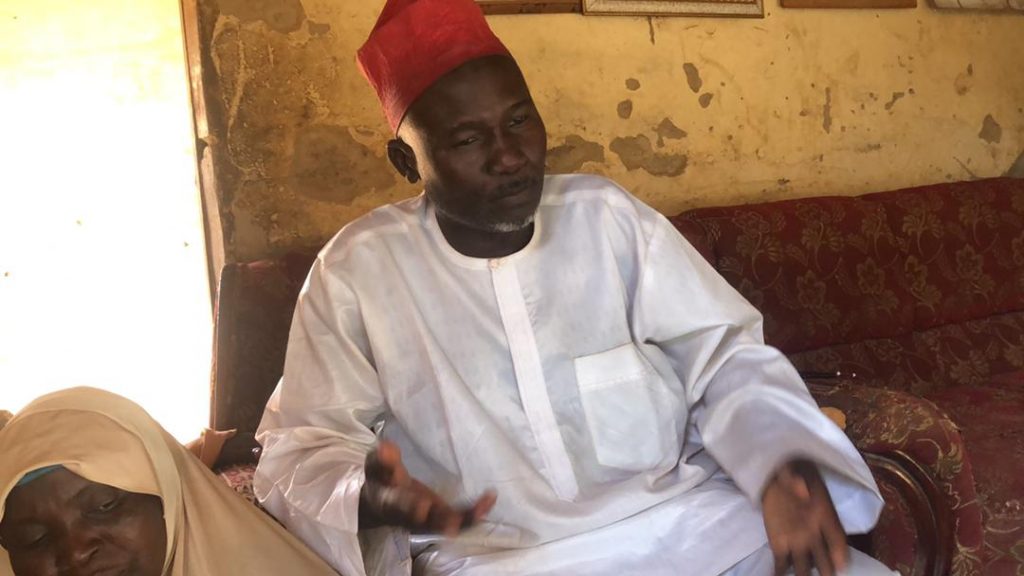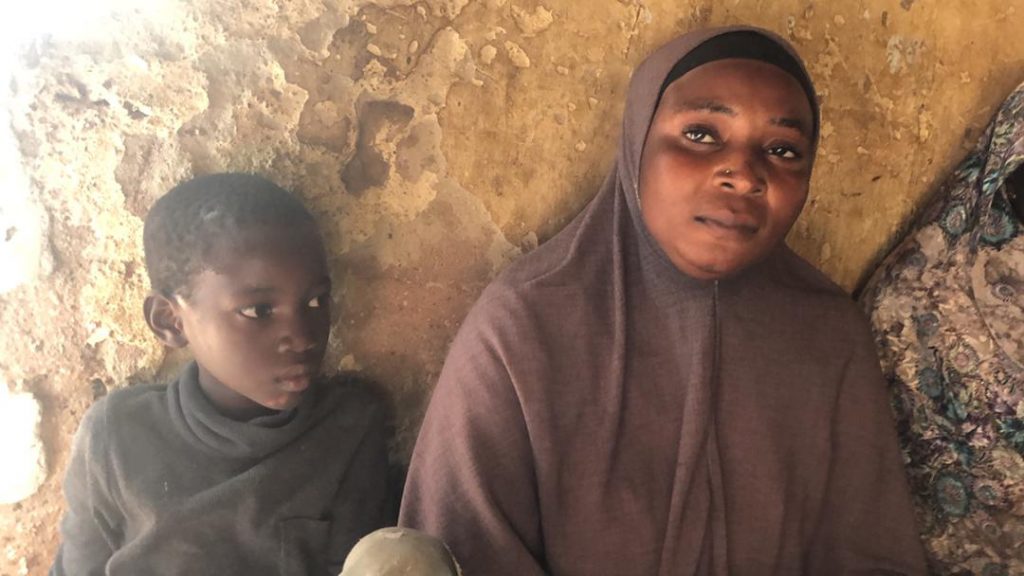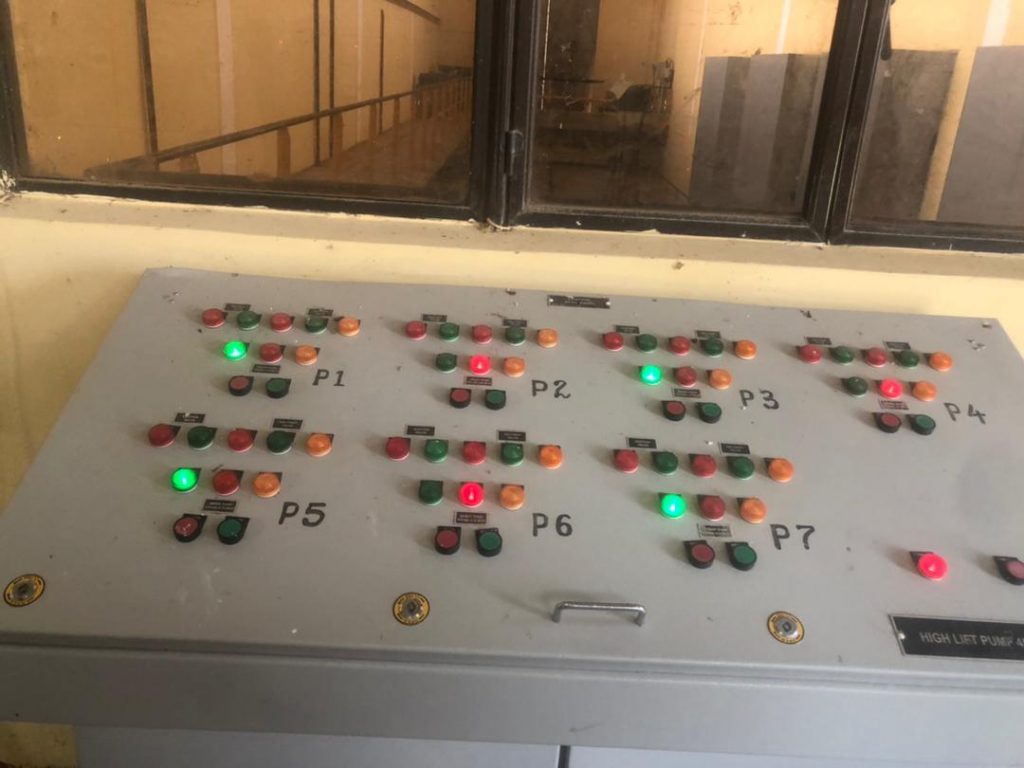Although marked as supposed beneficiaries of the N20 billion water project sponsored by the World Bank in Bauchi State, Wunti Dada, Gudum Hausawa, Gudum Sayawa, Rafin Makaranta, Turum, Inkil and a host of other communities in Bauchi metropolis were shortchanged in the scheme. The water project was aimed at improving water supply in the Bauchi metropolis and a few adjoining villages — but the story remains the same for many communities in the state capital, the seat of government. The project is marked as completed, impliedly, the N20 billion naira is expended, but Xchange Hama Media can authoritatively report that the project did not serve its purpose.
Data obtained from the World Bank’s website, suggest the project was captured in World Bank Third National Urban Water Sector Reform Project (NUWSRP3) which was aimed at rehabilitating and building infrastructures needed to increase access to water supply services for the populace in selected cities and urban centres in Bauchi, Ekiti, and Rivers States.
Specifically, the water project in Bauchi would involve the “laying of 12,081m of 1000-900mm transmission mains from Gubi dam conventional water treatment plant to Warinje Hills,” according to the data. In addition, the working activities include excavation, relocation of electricity poles away from the pipeline route, filling and construction of earth structures — drainages and embankments, bunds and cuttings; rock blasting in rocky areas, relocation of waste dumpsite along the corridor, pipe-laying work, provision of energy on-site using generating sets among others.
These are a few of the many things the World Bank water project was set to achieve in Bauchi State. The Managing Director of the State’s Water Corporation, Aminu Aliyu-Gital, explained that the project which includes the rehabilitation of Gubi dam, as well as the rehabilitation and expansion of Gubi water treatment plant, was aimed at upgrading the water supply in the metropolis. He added that a 150-kilometre pipeline within the Bauchi metropolitan area would be completed in 2020.
However, the pipes were laid, but Xchange Hama can report that the kilometres covered were not up to 150 as Gital claimed. Some areas initially billed to benefit from the scheme were sidelined as pipes were not extended to those places. This raises questions about the integrity of the scheme and how the money meant to benefit the communities was expended without commensurate results.
Two years down the line, nothing has changed
In mid-May this year, the federal government commissioned the project after its “completion.” But Xchange Hama’s investigation shows that the dearth of water is still endemic in the state. Residents of Bauchi State depend on contaminated water from the wells, streams and in some cases, untreated boreholes.
Reports after reports suggest residents of the metropolis have suffered endless waterborne diseases because of the consumption of untreated water. Evidently, it was the chief cause of cholera an outbreak that rocked the state last year, according to a report by a not-for-profit entity, Action Against Hunger.
According to the Bauchi State Primary Health Care Agency, cholera killed not less than 55 persons with about 1800 persons affected in 15 local councils with Bauchi and Toro LGA having the highest cases as of July 2021.
A visit to some of the communities marked to benefit from the water scheme but was shortchanged triggering many unanswered questions. From Yelwa axis, Federal Low-cost, Kobi, Jahun, Wuntin Dada, Railway lines to Bakin Kura — all in the state capital — the narratives remain the same even as it was projected that 75 million litres of water would be in surplus to an estimated 1.6 million in the state by 2027.

In Gudum Hausawa, a suburb on the outskirts of Bauchi State, residents say they still depend on contaminated water which endangers their lives.
An average person in the community may treat typhoid three to four times a month, according to residents.
Ummi lost her first son to typhoid; She risks losing the second too
Ummi Mohammed Bello, a 25-year-old mother of two in Gudum Hausawa, was bereaved about two months ago when typhoid fever grabbed her first son, Abubakar, 12. Her second son, Biliyaminu, 8, was also diagnosed with the same ailment.
“He was discharged from the hospital last week,” she says, adding her only surviving son had returned to drinking untreated water that sniffed life out of his brother two months ago — and also got him hospitalised in the previous weeks.

Ummi represents the many victims of such communities who suffer endlessly over the government’s failure to keep its promise. Umar Tukur, Sarkin Gudum Hausawa believes his village was deliberately shortchanged by the government.
The traditional leader explained that the corporation, before the completion of the project had invited him alongside other village heads to a hotel in Bauchi where it was promised that they would benefit from the project.
Like Gudum Hausawa, other villages — Turum, Inkil, Wunti Dada and Rafin Makaranta — were also cut out of the scheme, their leaders told Xchange Hama Media.
When wells dry up, the hardship multiplies
Almost every house has a well in Gudum Hausawa, but it often dries up and when it happens, locals must trek more than a kilometre to a stream where they fetch contaminated water.
According to them, the stream is often defiled by meandering herds of cattle. Unclean water is terribly endangering the lives of many villagers, says a health official at the community. The official (name withheld for fear of victimisation), told Xchange Hama that virtually everyone who walked into the facility was either treated for malaria or typhoid and other water-borne diseases.
Data obtained from the facility further shows how typhoid is rampant in the community, an omen linked to the contaminated water consumed by the residents.
“Women from different villages bordering Gudum Hausawa usually come for weekly immunization and antenatal care where we give them health talks about personal hygiene, water treatment and how to mitigate water-borne diseases,” says the health officer.
The healthcare worker says the awareness creation was necessary, “since the villagers don’t have alternatives to the contaminated water they consume.”
According to the village head, there was a time when water scarcity hit his community, and everyone must get water from the filthy stream. “Go to our hospital and see how typhoid is common in our medical records,” says Tukur. “Doctors have repeatedly told us that we contract the disease from unfit water. This was when I visited the water board over the issue and they promised us that the water will get to us, but here we are after the completion of the project.”
Laraba Musa, one of the women in the village said the hardship water scarcity brings to them is excruciating. According to her, children often get crushed by motorcycles while trying to cross the road with a water bowl on their heads. “Even an adult is not safe on that road and that is the only borehole we have in the entire community. You can queue up there for over three hours and still return home with empty buckets,” she says.
Queues and brawls — the tragi-comic in Bauchi metropolis
Federal Low-cost, a major suburb of Bauchi metropolis, which lies less than 4 kilometres away from the government house, there are only four boreholes, but only two are functioning, Xchange Hama Media can report.
One of them was constructed during the administration of Isah Yuguda, residents say.
Hadiza Idrees, a resident of Zongo believes the water project has not made any difference. “The struggle remains the same,” she says, adding only two boreholes out of the four are functioning. The wells which ordinarily are supposed to mitigate the suffering always go dry during the summer.
“The only option during the dry season is the borehole,” says Bashir Danjuma, another resident of Zango. “It is during the season you will find a lot of queues here and they always end up fighting each other for one reason or the other.”
Checks further show that new, but non-functional pipelines were laid in the area.
Despite registration fees, residents battle scarcity, rationing
An official of the state government whose name won’t be mentioned for fear of victimisation told this paper that all households in Bauchi metropolis paid certain fees to enjoy the new water scheme. “Unfortunately, they don’t have access to what they paid for,” the official laments. “For those that were registered before now, they had to pay N5,000 and those that are yet to be registered before the coming of the World Bank project had to pay double, N10,000.”
In addition, residents must pay a monthly levy of N500 per household and N1,000 per hotel. Those domiciled in GRAs pay N700, the official disclosed, adding that the procedure the government takes in collecting the levy is fishy as those that are supposed to take charge of that are being sidelined.
Bauchi State Water Users Association (BASWUA) is mandated to be collecting the levy, the official stated. “Apart from that, the association takes charge of registering new pipes, reporting leakages, and illegal connections and ensuring enough water supply through their supervision,” the officials explain.
But this medium understands that the association was being sidelined and deprived of its rights.
“The officials of BASWUA were given a vehicle to ease their routine operation, but the board later asked them to return the vehicle from their custody and only come for it whenever they need to use it,” the insider reveals.
Officials of the association say that is complicating their assignment. “We are equally left out as to why the water did not reach the communities marked to benefit from the scheme”, one of the officials of the association told this medium.
The findings of this paper show that the water supply in the metropolis is being rationed, despite the “expansion” of Gubu Dam and the laying of additional pipes. Some areas get water once or twice a week. For Instance, residents of Bakaro get water only on Sundays — they had to scout around for the other days. Those residing on Railway are quite fortunate. They get to use water thrice — Mondays, Wednesdays and Fridays. Kobi area shares the same rationing formula. Also, some areas do not have access to water despite paying registration fees.
Xchange Hama understands that leakage and many inconsistencies discovered inside the Gubi dam is avoidable, but unaddressed banes frustrating water supply in Bauchi metropolis.
Inside Gubi Water Plant, many things not right
During a visit to the treatment plant located at Gubi dam, our reporter uncovered several issues questioning the just completed N20 billion water project.
For instance, at the treatment plant, there are five clarifiers used in treating water coming directly from Gubi dam. But only one was working during our visit. Prior to the World Bank Project, there were three clarifiers — which are currently grounded. The project added two. Yet, only one is functioning at the moment.
When asked, the operator at the site (name withheld) told Xchange Hama that the faulty clarifiers would not affect the quantity of water supply in the township, but he declined to comment on other possible implications.
He also did not explain whether the water shortages being experienced in the metropolis are linked to faulty clarifiers.

The medium also discovered that certain chemicals used in treating the water are “in short supply, especially alum [aluminum sulphate],” says the operator. This is despite procuring the chemical in surplus at the rate of N1.2 billion a few months ago, Gital, the water board boss revealed in an interview with NAN.
According to Gital, they include aluminum sulphate, soda Ashe, liquid chlorine gas and powder. He noted the purchased chemical would last for two years. Now, it is barely a year since the completion of the whole project and the chemicals are already scarce.
Low power current, according to the operator, is another challenge stalling improved water supply in the state. Out of seven pump channels, only three work often as the power voltage is mostly below 400. The generators that are supposed to scale up their operation are also faulty, according to the operator.
Bauchi Water Corporation ignores FOI, Director Fails to pick calls
Xchange Hama Media has repeatedly called the head of the Bauchi Water Corporation, Engr. Aminu Aliyu-Gital for comments, he did not respond to calls put to his mobile line.
The medium has equally sent a Freedom of Information Request (FOI) seeking clarifications about the failure of the world bank water scheme to address the water of the residents in the metropolis. The FOI request was also ignored.
This medium specifically writes to find out; what stalled the water improvement in the state despite the N20 billion intervention, and why were the suburbs earlier marked to benefit from the water expansion later sidelined.
This medium in the FOI request also sought to find out why only one clarifier out of five was working at the time of the visit, why chemicals being used in cleaning the water are in short supply, and why BASUA was sidelined from its mandate among other critical questions. The FOI request is yet to be answered weeks after it was sent.
This publication is produced with support from the Wole Soyinka Centre for Investigative Journalism (WSCIJ) under the Collaborative Media Engagement for Development Inclusivity and Accountability Project (CMEDIA) funded by the MacArthur Foundation.




